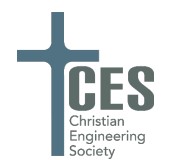Document Type
Paper
Abstract
The Engineering One Planet (EOP) Framework is a proposed approach for comprehensive sustainability education for engineering programs. It has recently become very popular with and has been heavily supported by ASEE. However, when the authors evaluated this framework for potential implementation in the engineering programs at [Blanked] University, they quickly concluded that (1) there were far too many proposed student outcomes and they were generally far too complex to be reasonably adapted into an existing program, and (2) some components of the framework were either indifferent toward or in conflict with a Biblically based Christian worldview.
The Sustainability as Stewardship (SaS) Framework was developed as a heavy adaptation of the EOP Framework. The most significant adaptation is the restructuring of the framework around the Biblically supported core principle that producing sustainable engineering and technology solutions is a faithful application of the concept of stewarding well the resources God has given us as human beings and designers. Additional adaptations also include simplifications of the categories and a reduction in the number of targeted outcomes in order to better accommodate both ABET expectations and the incorporation of the framework into an existing engineering curriculum. In addition to developing the SaS framework, the authors also built a series of fourteen curriculum modules in order to integrate the framework throughout a civil engineering program’s curriculum, with each module consisting of a single class lecture and follow-up assignments.
Producing sustainable designs ultimately requires an understanding of how design decisions are interrelated with environmental, economic, and societal contexts as well as their impacts on all of society through the global context (modules 2-5, respectively). Through additional modules, students are introduced to the topics of systems thinking, design, and communication & teamwork that are specific and relevant to their field of study. This framework also provided an opportunity to introduce a discussion about diversity, equity, and inclusion principles within the context of God-honoring sustainable design. Several modules were developed for each of these topics relevant to the field of civil engineering as a part of this first application of the SaS framework.
The framework and the curriculum modules have been completed and are being offered for the first time during the 2023-24 school year. This paper will present the Biblical basis and overall structure of the framework, as well as a sampling of how the framework could be applied to address some challenging topics related to the environmental design context and design considerations related to the social issues of Diversity, Equity, and Inclusion.
Creative Commons License

This work is licensed under a Creative Commons Attribution-Noncommercial-No Derivative Works 4.0 License.
Copyright
© 2024 David B. Dittenber. All rights reserved.
The Sustainability as Stewardship Framework: A Biblical Model for Addressing Environmental and Social Issues in Engineering Education
The Engineering One Planet (EOP) Framework is a proposed approach for comprehensive sustainability education for engineering programs. It has recently become very popular with and has been heavily supported by ASEE. However, when the authors evaluated this framework for potential implementation in the engineering programs at [Blanked] University, they quickly concluded that (1) there were far too many proposed student outcomes and they were generally far too complex to be reasonably adapted into an existing program, and (2) some components of the framework were either indifferent toward or in conflict with a Biblically based Christian worldview.
The Sustainability as Stewardship (SaS) Framework was developed as a heavy adaptation of the EOP Framework. The most significant adaptation is the restructuring of the framework around the Biblically supported core principle that producing sustainable engineering and technology solutions is a faithful application of the concept of stewarding well the resources God has given us as human beings and designers. Additional adaptations also include simplifications of the categories and a reduction in the number of targeted outcomes in order to better accommodate both ABET expectations and the incorporation of the framework into an existing engineering curriculum. In addition to developing the SaS framework, the authors also built a series of fourteen curriculum modules in order to integrate the framework throughout a civil engineering program’s curriculum, with each module consisting of a single class lecture and follow-up assignments.
Producing sustainable designs ultimately requires an understanding of how design decisions are interrelated with environmental, economic, and societal contexts as well as their impacts on all of society through the global context (modules 2-5, respectively). Through additional modules, students are introduced to the topics of systems thinking, design, and communication & teamwork that are specific and relevant to their field of study. This framework also provided an opportunity to introduce a discussion about diversity, equity, and inclusion principles within the context of God-honoring sustainable design. Several modules were developed for each of these topics relevant to the field of civil engineering as a part of this first application of the SaS framework.
The framework and the curriculum modules have been completed and are being offered for the first time during the 2023-24 school year. This paper will present the Biblical basis and overall structure of the framework, as well as a sampling of how the framework could be applied to address some challenging topics related to the environmental design context and design considerations related to the social issues of Diversity, Equity, and Inclusion.

